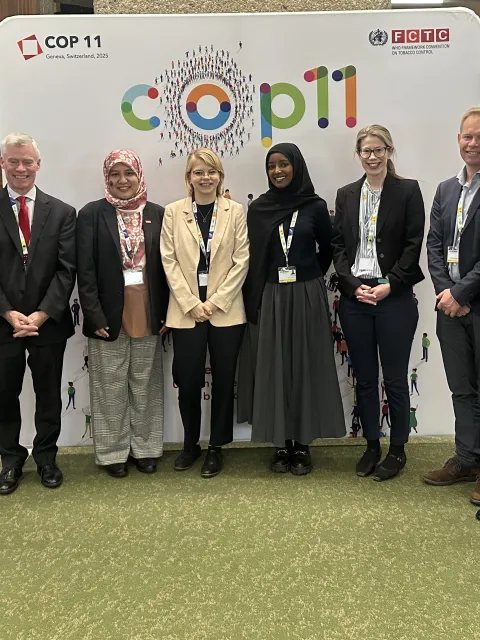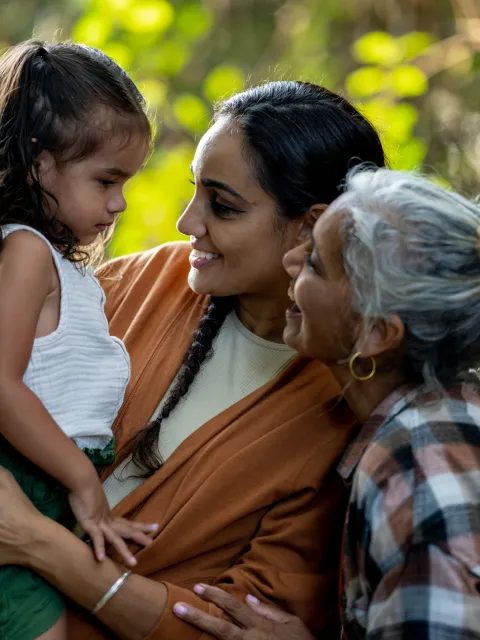Proven tobacco control tools are key to a healthy recovery

It sometimes feels like a whole new era began in early 2020 when COVID-19 started spreading.
Our old ways of doing things – business, travel, even social interaction – suddenly changed as the world struggled to contain a novel coronavirus.
But as talk of “flattening the curve” shifted to “the new normal”, it became clear that despite the unprecedented nature of this pandemic, the same public health challenges remain.
Cancer and other noncommunicable diseases (NCDs) are still the world’s leading causes of death and disability, only now they’re also making people more vulnerable to COVID-19. The COVID-19 pandemic is hitting marginalised communities the hardest just as NCDs do, underscoring the same inequities. And eight million people died last year due to tobacco use, while the tobacco industry encourages people to keep smoking despite a pandemic of respiratory illness.
As we work to overcome this new challenge, we can’t forget our existing public health toolkit. We need to double down on prevention, making use of legal and regulatory measures we already know are effective. That includes the landmark treaty that has been saving lives for more than 15 years: the WHO Framework Convention on Tobacco Control (FCTC).
Pushing mute on the tobacco industry
Like so many other global health organisations, the McCabe Centre was forced to move our in-person legal training programme online during the pandemic. Thankfully, that hasn’t stopped us from supporting lawyers and policymakers working on tobacco control laws and other legal measures to address NCDs.
Among the usual “you’re on mute” moments, many participants in our virtual training courses described how the pandemic has affected government priorities and the resources available for tobacco control projects. Even worse, the tobacco industry is swooping in to exert influence under the guise of corporate social responsibility.
Their experiences echoed stories from around the world. From the start of the pandemic, tobacco companies seized the opportunity to curry favour with governments reeling from this health and economic crisis. They donated medical supplies and sponsored hand-washing campaigns, framing their actions as benevolent, while at the same time lobbying aggressively to be treated as “essential services” when countries implemented lockdown restrictions.
Instead of promoting public health, the tobacco industry made a concerted effort to confuse and distort science around links between COVID-19 and smoking, and recruited social media influencers to push its deadly products.
These actions are especially dangerous at a time when access to accurate health information can be the difference between life and death. But they are not surprising. They are the same old tricks the tobacco industry has pulled for decades, and while it’s discouraging to see these tactics continue, it means we already have tools to address them through the WHO FCTC.
Through Article 5.3, countries can limit tobacco industry interference in their public health measures. And by implementing bans on tobacco advertising, promotion and sponsorship through Article 13, countries can reduce the spread of misinformation from the tobacco industry.
Tobacco control tools through the WHO FCTC
Through the WHO FCTC, countries can also pass laws to raise taxes on tobacco products to make them less appealing (Article 6), warn smokers about health risks by mandating graphic health warnings on tobacco packaging (Article 11) and protect non-smokers from exposure with bans on smoking in public places (Article 8).
These measures are proven to be effective in preventing cancer and other NCDs, and can keep people healthier through the pandemic and into the future. Yet there are still gaps in their implementation. For example, only 38 countries – covering 14% of the global population – have tobacco taxes high enough to make an impact. And the pandemic has further complicated matters, dominating public health agendas and disrupting the NCD services that are essential to our health and recovery.
Thankfully, there is still plenty of great tobacco control work getting done.
Jamaica’s new comprehensive tobacco control bill aims to ban tobacco advertising and sponsorship and restrict industry interference, while Mexico’s Chamber of Deputies recently approved reforms to the country’s tobacco control law that – if passed and enacted – will create similar bans on tobacco advertising and sponsorship and mandate 100 percent smoke-free indoor public spaces and workplaces.
Last June, Australia won the final victory in the long legal battle over its world-first tobacco plain packaging measures, giving momentum to other countries considering introducing plain packaging. And now New Zealand is consulting on the bold Smokefree 2025 Aotearoa Action Plan, which aims to realise the country’s longstanding goal of minimising smoking and eliminating smoking-related health disparities by 2025.
There are also signs the pandemic presents opportunities for tobacco control. Many smokers are more interested in quitting, while countries have shown they are willing to take dramatic action to protect the health of their citizens. One thing is for sure: if we don’t seize these opportunities, tobacco companies will.
The world has changed enormously since 2020 but the power of tobacco control remains. By using the tried and tested tobacco control tools available through the WHO FCTC, we can help limit the influence of the tobacco industry, reduce the impact of the COVID-19 pandemic and tackle the global epidemic of NCDs.
Last update
Friday 28 May 2021Share this page


